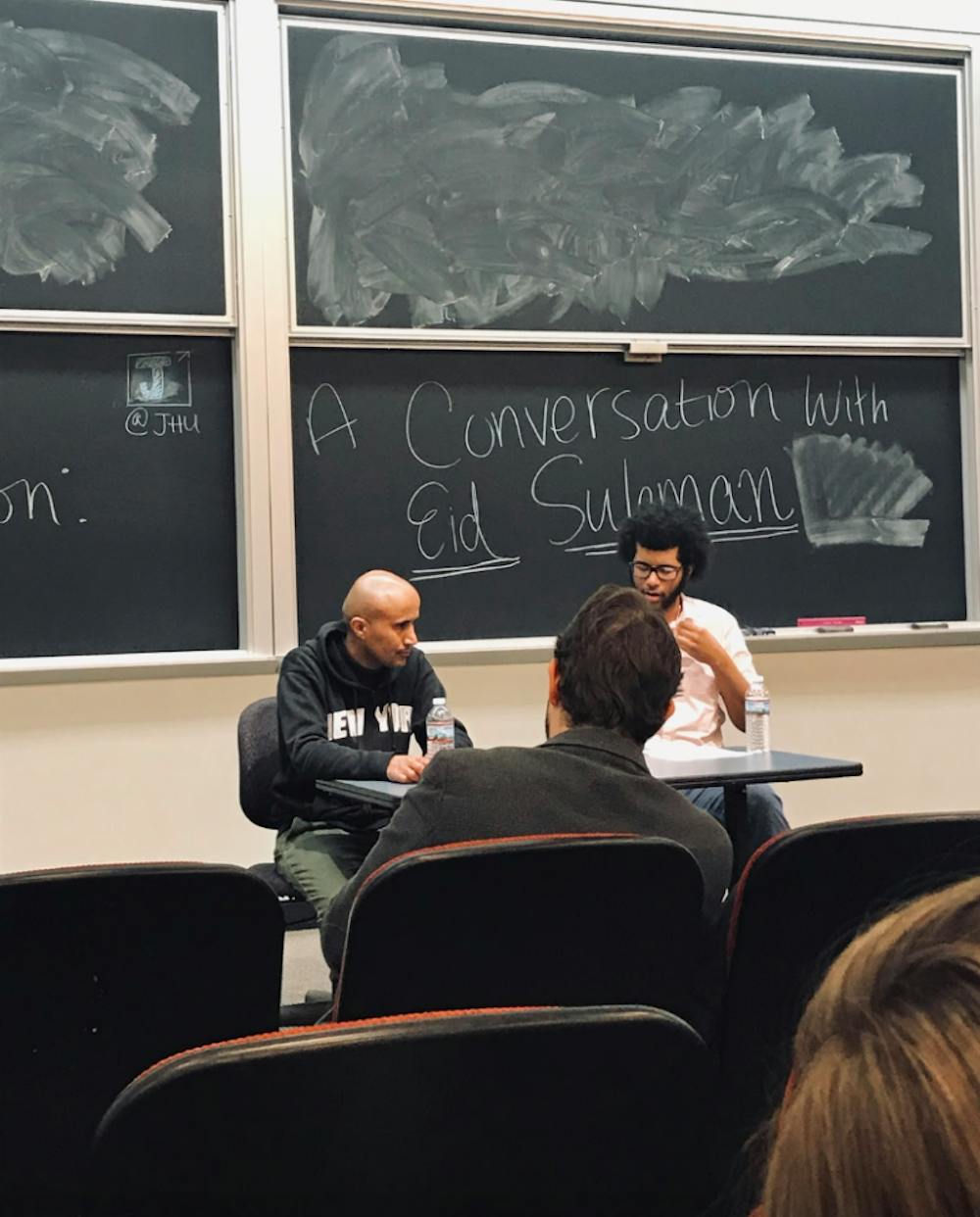Eid Suleman, a Palestinian activist, discussed his experiences of life under Israeli occupation in Umm al-Khair, a city in Area C, the part of the West Bank that is under Israeli military and civil control. Suleman addressed the relationship between the Palestinian residents of Area C, the Israeli Civil Administration and the Israeli Defense Forces (IDF). Suleman fights against home demolitions by conducting international speaking tours and creating multimedia artwork. J Street U, a student group advocating for a peaceful two-state solution to the Israeli-Palestinian conflict, hosted the event.
In his talk, Suleman gave a firsthand account of the indignities perpetrated against Palestinian residents of Area C to raise awareness about their living conditions. Because of the Israeli occupation of Palestine, Palestinian residents lack the power to effectively challenge government orders such as home invasions and demolitions for the creation of new Israeli settlements.
Suleman expressed his frustration with the feeling of powerlessness in the face of these demolitions and stated that he does not believe a two-state solution is possible at this point.
“If you ask the Palestinians in the area, they will say there is no two-state solution,“ he said. “If Israel takes all of Area C and makes it into a land for Israel, then Palestinians who live in Area C will have to choose to stay as residents, not citizens, or to leave for Area A. Who will pay the price at the end of the day? Who will see more home demolitions, more evacuations, more confiscations? The Palestinians who live in Area C.”
Suleman elaborated on the damaging effects of these demolitions.
“Many families are separated after home demolitions. Some have to be refugees in other countries for a while. It’s very hard for these families to suddenly wake up one morning without their homes and items. A lot of them also need treatment after being in traumatizing situations such as seeing the military using grenades, tear gas and bullets in front of children,“ he said. “It is an unacceptable situation, and these families are not even getting compensated for their loss.”
In the question and answer session of the talk, Suleman spoke on his predictions for the future of the West Bank. The international community, he argued, could turn the tide of the conflict and spark new peace talks in the area. Without the help of other countries, however, he does not see the situation changing positively in the future.
He described the relationship between the Israeli Defense Forces and Palestinian residents in Area C as “mostly a dialogue of violence” that is unlikely to better itself without outside aid.
“The relationship between us and them — the IDF soldiers and the Palestinians — is fear. It’s not easy seeing people armed with weapons who are afraid of you while you are also afraid of them,” he said.
Similarly, Suleman believes that the lack of a substantial relationship between the Palestinian National Authority and the Israeli government produces no serious dialogues on conflict solutions.
Suleman charged the international community, especially the U.S., with becoming more involved in the conflict. Today, he explained, the U.S. government has effectively given Israel a green light to do what it wants in the West Bank without ongoing peace discussions. He felt that because Israeli right-wing non-governmental organizations (NGOs) also remain unregulated, it allows for private money from the U.S. to fund damage against Palestinian society.
He added that the use of state surveillance is prevalent in Area C.
“They have drones, cars and cameras, and they use them to survey the Palestinian villages in Area C to see if there are any violations of the law, such as the Palestinians building homes illegally. Then they send the footage to the military and the Civil Administration and charge them to demolish the structures. Those NGOs continually cause the Palestinians a lot of damage, and they’re funded by private money in the United States.”
Suleman emphasizes that it is in this seemingly hopeless state that the energy of the young is most powerful. Demonstrations spearheaded by Israeli and Palestinian youth continue to arise. Suleman argues that this is where the non-government-affiliated international community — such as interested students and American Jews — can play a major role in finding a solution to the conflict. He hopes that his lecture tours and multimedia art projects help spread awareness and inspire others to learn more.
Member of J Street U freshman Batya Wiener felt that Suleman’s talk effectively met this goal.
“Every year, millions of young Jews go to Israel on trips like Birthright and come back completely oblivious to the struggles that Palestinians face everyday. This leads to the overwhelming omission of the Palestinian narrative in Israel education, which allows for the development of hugely misinformed views on the conflict,” she said. “I agree with him that American Jews should begin visiting the West Bank to truly understand what is going on.”





